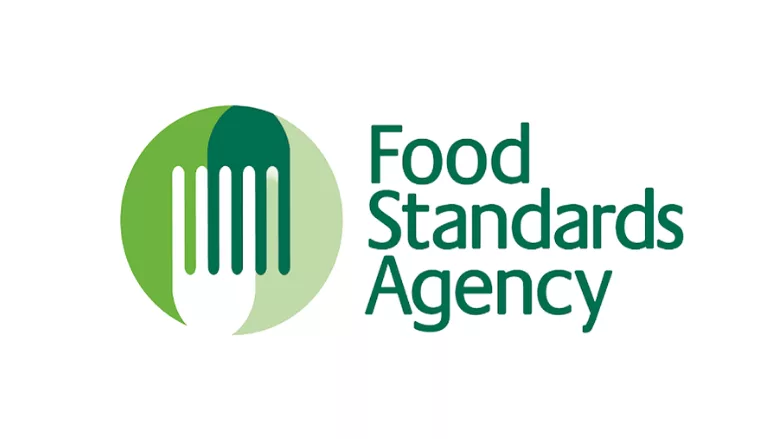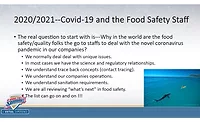How UK Ensured Food Safety in 2021–22 After Brexit, COVID-19

Credit: The Food Standards Agency of the UK (FSA)
In 2021–2022, the UK Food Standards Agency (FSA) focused on recovering from the COVID-19 pandemic, adapting to Britain’s exit from the EU, and working to ensure the safety of the UK’s food supply, according to a recently released annual report.
FSA continues to strive to “return to normal” in the wake of the COVID-19 pandemic. The agency also progressed research on the survival of the SARS-COV-2 virus on food surfaces and packaging.
Additionally, the agency had to grapple with its expanding responsibilities post-Brexit. Tasks that FSA took on after the UK’s exit from the EU include authorizing new regulated food and feed products, managing fair trade agreements, import and export activities, handling food crime through the National Food Crime Unit (NFCU), conducting risk assessments, and taking charge of food and feed law.
Until full import controls are introduced for EU goods entering Great Britain (approximately the end of 2023), UK food safety authorities will continue to manage risks through pre-notifications, which were introduced in January 2022 for certain high-risk food and feed imports. Furthermore, since Brexit resulted in the UK’s exclusion from the EU’s Rapid Alert System for Food and Feed (RASFF), FSA and Food Standards Scotland have built alternative arrangements with other international partners as well as investing in new surveillance approaches.
Notably, in 2021–2022 FDA published its new five-year strategy, which will guide the agency’s actions through 2027. For the 2021–2022 period, FSA focused on executing its regulatory role, and the majority of FSA’s funding was allocated to delivering its core functions. Key areas of work that FSA carried out in 2021–2022 include:
- Monitoring foodborne diseases—specifically, Campylobacter, Salmonella, Shiga-toxin producing Escherichia coli (STEC), and Listeria monocytogenes infections—cases of which increased for all pathogens when compared to 2020; however, cases of Salmonella and STEC remained lower than pre-pandemic levels
- Increasing the number of FSA’s scientific staff by 40 percent, and delivering a £10 million research and evidence program
- Conducting sampling, testing a total of 11,065 samples, and finding 245 non-compliances as a result
- Starting PATH-SAFE, a £19 million cross-government effort to explore novel methods for improved foodborne disease and antimicrobial resistance (AMR) surveillance
- Completing 249 meat industry audits that were previously deferred due to the COVID-19 pandemic, successfully clearing all outstanding audits and returning the number of full audits completed to pre-pandemic levels
- Carrying out more food hygiene inspections and interventions than years prior, resulting in a 179 percent increase in the number of food hygiene ratings when compared to pre-pandemic levels, on which 96.9 percent of establishments scored “satisfactory” or better
- Maintained MenuCal in Northern Ireland, which is an app that helps businesses manage allergen risks and calculate calories
- Progressing work on 420 regulated products applications, of which many were related to cannabidiol (CBD)
- Finishing the first end-to-end conviction through the NFCU
- Commencing risk assessments on dioxins and polychlorinated biphenyls (PCB), per- and polyfluoralkyl substances (PFAS), and the safety of titanium dioxide as a food additive, as well as completing a review of radiological controls on imports from Japan following the Fukushima nuclear incident
- Continuing the Achieving Business Compliance Program, including progressing and concluding pilots in England and Northern Ireland for a new risk-based model for food standards, developing FSA’s approach to modernize the food hygiene delivery model, working industry to develop a proof-of-concept to test regulating at the business level, and developing FSA’s knowledge base to inform future work to assure the safety of online food sales
- Modernizing official controls through the Operational Transformation Program, including the digitalization of meat approvals, progressing the initial review of legislative strategy options for official controls, and developing and piloting a segmentation model that enables a more data driven and risk-based approach to scheduling audits
- Supporting businesses and local authorities in implementing the October 2021 Prepacked for Direct Sale legislation, which requires food businesses to label the type of food with the name and ingredients list, with the 14 major allergens emphasized within the list.
Looking for quick answers on food safety topics?
Try Ask FSM, our new smart AI search tool.
Ask FSM →









